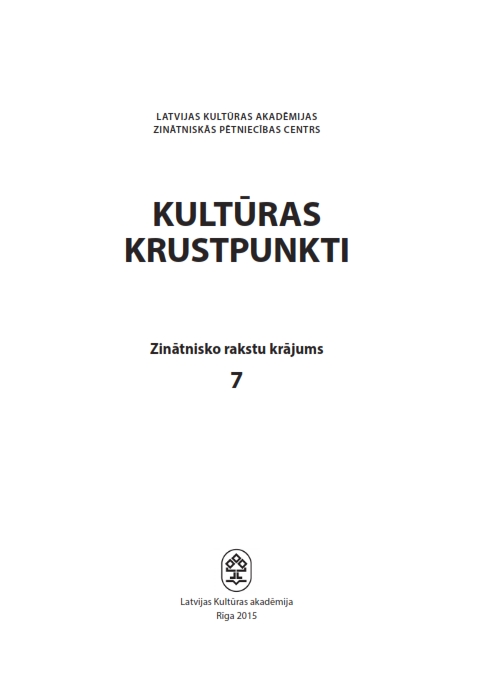Simboliskais un semiotiskais Vizmas Belševicas dzejas poētikā
The Symbolic and the Semiotic in Vizma Belševica’s Poetics
Author(s): Anna AuziņaSubject(s): Gender Studies, Cultural history, Semiotics / Semiology, Poetry, Latvian Literature
Published by: Latvijas Kultūras akadēmija
Keywords: feminist theories; poetry; poetics; Julia Kristeva; Vizma Belševica; a feminine subject; feminine language;
Summary/Abstract: The article analyses Vizma Belševica’s poetic language by using the theoretical position of the French feminist Julia Kristeva who speaks about the pre-symbolic or the semiotic in language as a way of denoting what is related to rhythm, not signs. She believes that the semiotic contains a feminine code because it is related to the maternal body. The semiotic, when it is preserved in a language, causes different variations in the strict language norms, most often in a poetic text. Analysis of a number of examples reveals the specific character of Belševica’s poetics, as we follow the interaction of the symbolic and the semiotic in her poems. The semiotic or the pre-symbolic, which contains the feminine code, is not obvious in Belševica’s poetry; nevertheless it is present as it transforms the Latvian poetic tradition that used to be explicitly symbolic before. Although similar means can be observed in the poetry written by male authors and the opposition masculine/feminine is rather abstract, not marked by the sex of the author, yet in Belševica’s case the feminine means of expression: fragmentary language, dots, omissions/silence correspond to the experience uttered by a woman or a rebellious social idea, and it helps these ideas to gain a stronger influence.
Journal: Culture Crossroads
- Issue Year: 7/2015
- Issue No: 1
- Page Range: 249-260
- Page Count: 12
- Language: Latvian

